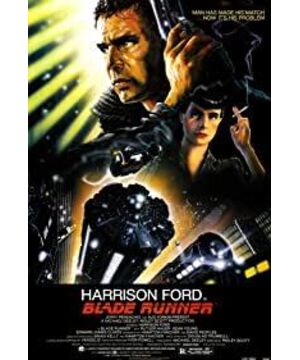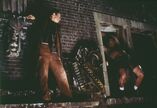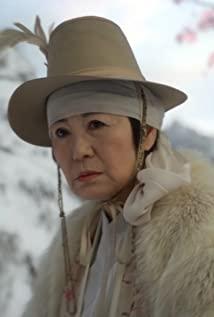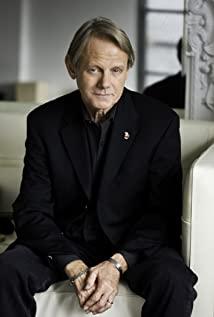In November 2019, the future came in another way.
Preface
Today is the first day of November 2019.
Welcome to the beginning of the "Blade Runner" story.
In fact, the time when "Blade Runner" occurred has undergone many changes-
In 1967, when Dick wrote the original work, he imagined the world in 1992;
In 1980, the novel was republished in the United States. The publisher felt that the technology in the book was not likely to be realized soon. In order to justify it, the time was changed to 2021;
In 1982, a film adapted from "Blade Runner" was released. Ridley Scott shifted the timeline forward a bit, and there was the classic title November, 2019.
November 2019 has become a moment of "future" in public perception.
This day has finally arrived.
There are no bionics, no electronic sheep, no warships burning on the edge of Orion.
Coca-Cola and Tsingtao Beer are still there, and Bell Telephone and Atari have long since disappeared.
Did they "misunderstand" the future?
Do not.
Look at the world today, gene editing, Siri, electronic payment, voice recognition, network, sharing economy...
The future has arrived in another way.
In this day full of science fiction and game sense and crisis-ridden, it is very meaningful to commemorate the master who wrote "Blade Runner" and understand his future world.
Philip Dick by Lothario Areski
Philip Dick and the world today
(Excerpt)
Author | Xiaoqing
After Dick's death, his books kept being republished, and he was exclaimed as a great writer of this era, or a science fiction writer among science fiction writers.
Someone used his name to set up a science fiction award, and his novels were frequently reproduced into movies, including "Blade Runner", "Minority Report", "Total Memories", "The End of Alien", "Alberms Free Radio" , "Destiny Planning Bureau" and so on, a total of ten.
Spielberg, Wu Yusen and others have all been directors.
"Total Recall", "Minority Report", "Fate Planning Bureau", "Memory Rift"... Needless to say, Dick may be
Of course, add the recent "Philip Dick's Electronic Dream"
Dick's novels left a few deep impressions on me.
First of all, he does not engage in popular science, nor does he write orthodox core science fiction.
Although, from the perspective of science fiction, his settings involve many new world views that are not mechanical, including relativity, quantum theory, and confusion with chaos theory, the second law of thermodynamics, complexity theory, and virtual reality. The machine is also his favorite theme.
The background he gave includes the entire solar system, with spacecraft, moon bases, and trips to Mars from time to time, but these are not his focus.
It is rare to see Dick, like a Chinese sci-fi writer, doing a large-scale exposition around a very hard scientific principle.
He also created a lot of strange languages, and made various inventions, such as the Hall of the Dead, photophase, anti-super technology, etc., but he basically did not explain the core of these "high-tech" theoretically. Including going backwards in time, there is no reliable explanation.
He is more like walking between science and metaphysics.
He created a gloomy and closed universe that kept sliding towards death.
For example, "Ubik" published in 1969 is like this.
This bright pink cover goes well with Dick
This story predicts that in 1992, ordinary people will be able to land on the moon casually, and many people have superpowers, such as telepathy.
There is an American company, whose boss is Lancet, and his half-dead wife opened this company, recruiting anti-superpowers to serve customers, such as protecting the superpowered people from spying on the privacy of their brains. Joe Chip is one of them.
One day they took a big order and came to the moon, but they were calculated by a competitor and got bombed. The team members found that the boss was dead. Chip and others fled back to Earth, and found that many things were changing, including phone cards no longer work, milk deteriorated, and money changed. It was the head of Roosevelt and became owner Ronsett's, and Lang died. Sitter kept sending them messages, very strange.
In the end, even the time changed. They went back to 1939, back to a world that resembled the United States. As long as they leave the team, they will disappear and die one by one. In the end, Chip found that he himself was actually dead, in a half-dead state, and all the team members had died early, but his boss was actually alive and was trying to activate him and talk to him. But at the end of the story, even the boss couldn't be sure whether he was alive or dead. And how did all of this come about, until the end is still confusing.
It's such a story. From beginning to end, it is full of mystery, dark and cold, and it is complete despair, like a nightmare. More precisely, the reader is like traveling on a Buddhist-like bardo journey.
In "Black Mirror: Bandersnatch", there is a huge "Ubik" poster on the wall of ZZ home
Dick invented a sci-fi setting in "Ubik", which is also translated as "The Hall of the Dead" in Chinese. The dead people are frozen in it, but they are actually half-dead. Visitors can use a kind of light-based The technology of the child stimulates the thinking of the half-dead, allowing them to talk to the living, discussing issues together, discussing things, and running the world together, and every time the conversation, the half-dead will slide towards the real death with the consumption of energy. Go for a point.
Ubik is a spray to prevent decay, preventing people from falling into complete death. But what it is and how it came about is still mysterious in the end. According to Dick’s ex-wife, Ubik is actually a metaphor for God, omniscient and omnipotent.
Like many of Dick's works, "Ubik" is also from the fields of politics, business and physics, and finally enters the torture of ontology. This is the most tangled, exciting and confusing part of Dick's novels.
Secondly, the plots of Dick's novels are often tense, full of chases, killings, wars, and conspiracies.
But it’s not like Dan Brown or Tom Clancy’s novels, it’s more like wandering between dreams, and finally moving towards sociological and philosophical speculation, to answer whether the world is real and the exact identity of mankind is What's the problem.
In the classic novel "The Man in the High Castle", the Axis of Germany, Italy and Japan won World War II, and the United States was dismembered into three parts. The east is governed by Germany, the middle is counted as an unarmed autonomous region, and the west to the Pacific coast is governed by Japan. The whole world is divided by the two superpowers of Germany and Japan, Asia is under the control of Japan, and Europe and Africa are under the control of Germany. The two countries have both cooperation and conflicts.
"The Man in the High Castle", also translated "The Strange Man in the High Castle"
At the beginning of the story, Hitler was already crazy, and Prime Minister Poman was dying, and a power struggle broke out in Germany.
In the novel, Dick expresses his aversion to fascism. In the world he describes, there are secret police everywhere. The Nazis are extremely evil. Blood and darkness are everywhere.
"The Man in the High Castle" reads a bit like Orwell's "Nineteen Eighty Four." The fate of ordinary people is uncertain and depressing. They live a life of fear every day, like a nightmare.
Most of the space in the book is about the lives of these ordinary men and women. This is not the same as many American science fictions at the time. Those science fiction focuses on spaceships, nebulae, and aliens. In fact, "The Man in the High Castle" is a novel about the relationship between people. It talks about the estrangement and suspicion between people. They don’t know who they are or who the others are. They are all looking at each other and talking. The ambiguous dialogue is caught in a dilemma. Even the occupiers, the Germans and the Japanese, were very tired.
This seems to be an existential novel.
"The Man in the High Castle" is the fourth season of the American drama
Fortunately, in the dark rule, the "Book of Changes" appeared, helpless people living like worms, looking for answers from the lines and hexagrams. This is a core of the novel.
It is not the same as the mechanical universe in the West. It is regarded as an Eastern thought against fascist philosophy, and it is also the hope of people seeking salvation. It seems to bring new certainty to an uncertain world. Fortune telling is to give a certain conclusion.
It was through the "Book of Changes" that people discovered another world, parallel to ours, a better world, a utopia where dreams came true, where Germany and Japan were defeated by the Allies. The people in Gao Castle wrote a novel "Locust Disaster", which records the story of the world he inferred from the "Book of Changes".
One of the protagonists of "The Man in the High Castle", a trade minister who is addicted to "Book of Changes"
This became a banned book and was banned by Germany and Japan. This is a book in a book. Later, Kim Stanley Robinson's "The Wild Coast" may have been affected by this.
Dick told readers in "The Plague of Locust" that what is fictional is the real, and the "real world" we live in every day is false.
However, if you look carefully, the fiction is not true. Indeed, in "Locust Disaster", the Allies won, Germany, Italy and Japan failed, but it is not the World War II that we have seen in history today. Many details are gone. It's the same.
The post-war world is also different from reality. For example, the description of China in the 1950s and 1960s is very similar to China after 1978. The Soviet Union was broken up, the United States realized democracy, and Britain became a centralized power. Churchill was in power until more than ninety years old. In the end, the United Kingdom and the United States failed in the Great War.
So, what is real? There is no answer. This reflects Dick’s worldview, because in his view, everything is uncertain. Therefore, in this book, he makes those lines and hexagrams contradict each other. The book of Changes finally gives a picture. Unidentified image of the multiverse.
Here, Dick combines Eastern classical culture with modern physics, the two worlds of yin and yang, but above this world is chaos and nothingness.
Even those details are true. Real cultural relics and fake cultural relics are indistinguishable. This also implies that the world will eventually go into chaos. This is an outcome that entropy cannot undo.
This will be the case for the Nazi Empire or the American Empire. Therefore, the "Book of Changes", which seems to be able to calculate the future destiny with certainty, leads people to greater uncertainty in their destiny.
Third, it is a more literary novel.
The picture he constructed is unprecedented in the history of human literature.
In "Dr. Blood Money", the world destroyed by nuclear war splits into hundreds of small communities. Nuclear radiation has led to the production of new intelligent creatures and mutants with special functions in the world. In space, there is also an aerospace. The members fly endlessly around the earth.
This weird but extremely real scene is a portrayal or metaphor of this real world.
Dick wrote about the deepest aspect of human nature. Therefore, his novels are more about humanistic value.
His language is short and full of self-controversy, revealing his distrust of the world and others.
His words are dark, chaotic, fearful, trembling, grotesque, absurd, crazy, repressed, and entangled. They are often dreamlike long dialogues. The protagonist also seems to be living in someone else’s dream. The world will turn over at any time, and it’s gone. Mystery and dislocation, the narrative is often incoherent, with a religious or cult-like ontological complex, a mixture of fragments of Eastern and Western culture, and permeating philosophical or quasi-philosophical contemplation or convulsions.
His works are often difficult to read, difficult to understand, and even more difficult to translate.
Like "The Three Stigmas of Palmer Edric", in the whole novel, reality and illusion are difficult to separate. Is the protagonist a puppet of an alien, an illusion in the eyes of the investigator, or a god himself It’s impossible to draw conclusions in Dick’s neurotic writing.
The three stigmata originally referred to the scars left on Jesus' body when he was nailed to the cross. Later, many believers had the same scars or marks on their bodies inexplicably.
"The Three Stigmas of Palmer Edric"
Critic Augis Batriz commented on the novel like this: "This is a novel with great significance, smooth plot, and beautiful rhythm control. As long as you read it, you can have an unparalleled brain-burning experience."
A book review in the "Boston Globe" wrote: "When reading Dick's mysterious and unbelievable novel, readers have to judge for themselves what is real and what is dream."
In today's world, thirty-three years after Dick left us, his worries seem to be more and more consistent with reality.
The ecological environment is polluted, human figures are invisible in the smog, and the technological revolution has brought about the enslavement of technology to people. People are immersed in electronic products and games like opium. Religion has become one of the biggest propositions in the age of scientific prosperity. The wars in China, including robot wars and information wars, as well as nuclear proliferation and religious extremism wars, are deeply frightening.
Economic downturn, weak growth, widening gap between rich and poor, new totalitarian rule, "uncertainty" has become the key word to describe the world.
All these make us re-examine the meaning of human existence.
And all this is exactly the subject of Dick's presentation.
postscript
Back to the beginning, are the science fiction masters of the year thinking about the future wrong?
Not really. The function of science fiction is never to predict the future. It allows us to re-examine the meaning of human beings.
Today, when you lament "the future is here", stop by and read Dick.
Author | Xiaoqing, a science fiction lover, and a visiting scholar at the Center for East and West America. A heavyweight science fiction writer with the closest temperament between China and Dick, I won’t tell you who it is
Preface, Postscript | Captain
View more about Blade Runner reviews











